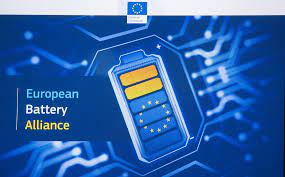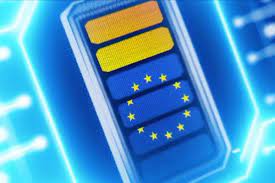TECHNOLOGY FOCUS
The transportation sector is at a crossroads. As one of the biggest consumers of the world’s energy and a major contributor to CO2 emissions and air pollution, the onus is on the transport sector to find alternative energy solutions to drive a sustainable future for all.
In this certification, you will learn about the electrification of the transportation system and how this development affects the overall energy system. You will hear crucial insights about business models and regulations impacting electric vehicles. Finally, you’ll explore the needs of an urban transport system, including charging infrastructure.
_Sign22.png)

COURSE CONTENT
This certification empowers learners to:
• Explain how the history of electric transport is reflected in today’s industry
• Differentiate different car propulsion technologies, from combustion engines to hybrid vehicles and fully electric cars
• Describe the impact of electromobility on the energy system
• Explain how current business models and regulations impact the design of electric charging systems
• List multiple forms of electric transport and their impact on the energy system
• Describe challenges and solutions on the path to transport electrification at scale
WHO SHOULD ATTEND
This certification is beneficial for learners involved in the energy industry, and for academics and individuals who want to deepen their understanding of energy systems integration and developments in this exciting and important field.
In order to be able to follow and benefit from the Energy Systems Integration: the Future of Transport certification, learners would need to have a basic understanding of the electricity system.
The required time investment is around 4.5 hours on average, including the certification evaluation. The provided estimation of learner time investment is approximate and serves as an example. We recommend for course providers to assess the availability and needs of their target audience and adapt the course duration accordingly.
To succeed in Energy Systems Integration: the Future of Transport and receive a Certificate of Accomplishment, a learner needs to obtain a minimum score of 75 points in the certification assessment. This certification assessment serves as a test on the understanding of the course content by each learner. In-lesson quizzes are only meant for self-evaluation and do not count towards the final Certificate.

- Lesson 1: Get introduced to the concept of electrification of the transportation system, through a short history of the electric vehicle, technological breakthroughs that have led to the revival of electric transportation, and challenges that still need to be addressed.
- Lesson 2: Learn how to recognise the difference between a battery electric vehicle and a traditional gas-fueled car, and about the most common types of hybrid electric vehicles.
- Lesson 3: Review the different primary sources of energy used to generate electricity and understand how the extra electricity used for transportation affects the electricity grid on different scales.
- Lesson 4: Learn how electromobility is integrated within the larger energy system considering the charging infrastructure, return on investment, as well as relevant taxes and fees.
- Lesson 5: Explore several other modes of electric transportation such as public transportation, electric ships and planes, and more.
- Lesson 6: Explore some of the important challenges for electromobility and its future.
- Case study 1: Learn about several technologies developed by ABB that assist with the integration of electromobility in today’s energy system and explore different approaches to rolling out fast-charging networks.
- Case study 2: Get introduced to electric public transport, looking into three different technologies used for electrifying public transport: overhead lines, inductive charging, and conductive charging.
- Certification assessment: Take an online exam covering topics from all the component courses within the certification. Successful completion of the certification assessment (scoring 75%) will earn you a Certificate of Accomplishment for this certification.

